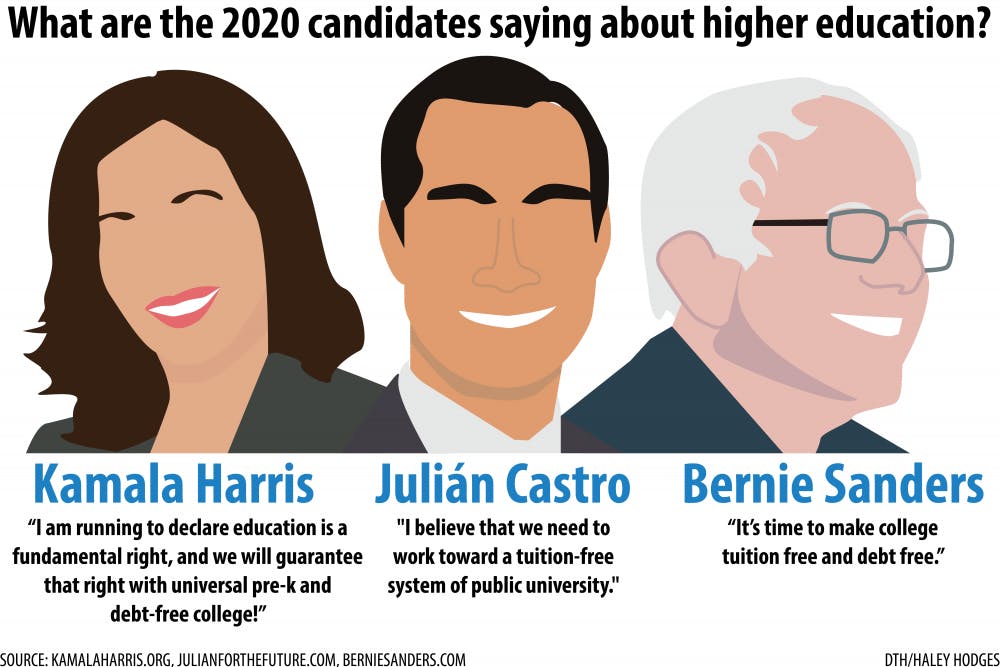CORRECTION: An earlier version of the article misquoted Wesley Whistle. Whistle said he he hopes that whatever affordability conversation happens, it iss one that is targeted at helping the students who need a college degree the most. The story has been updated with the correct quote. The Daily Tar Heel apologizes for this error.
Over the past few weeks, multiple Democratic candidates have officially announced their presidential candidacy. Others have formed exploratory committees, and some are still contemplating whether they will run.
Following high turnout among young voters for the 2018 midterm elections, some candidates have decided to focus on issues that may appeal to the youth, such as having students graduate without debt and establishing tuition-free community colleges.
During the last few months, the Trump administration has been criticized for the small percentage of students that are forgiven under the Public Service Loan Forgiveness program, and Congressional Democrats introduced legislation to make college more affordable.
Kim Dancy, assistant director of research and policy at the Institute of Higher Education Policy, said Sen. Bernie Sanders, I-Vt., changed the idea from free college being an afterthought on the national level to a pressing issue in three years.
“There had been more targeted and localized efforts at free college long before Sanders proposed the idea in 2016, but he was very effective as a messenger for that platform," she said.
Sanders, who is considering another presidential run in 2020, has not backed down from his stance on free college circa 2016. On the senator’s website, there is a section entitled “It’s Time to Make College Tuition Free and Debt Free,” which details a six-step plan to achieve this goal.
While Sanders ran on the idea of free college during his 2016 campaign, he faced opposition from other Democratic candidates on his education policy. Former Secretary of State Hillary Clinton, his opponent, initially disagreed with Sanders' free tuition plan on the grounds that students from wealthy families should not go to college for free. Her eventual education plan begins by offering students from families with an annual income of less than $85,000 free tuition at in-state colleges and universities.
Wesley Whistle, an education policy adviser at Third Way, a national think tank, said he sees the discrepancy between the policies of Democratic candidates as positive.



